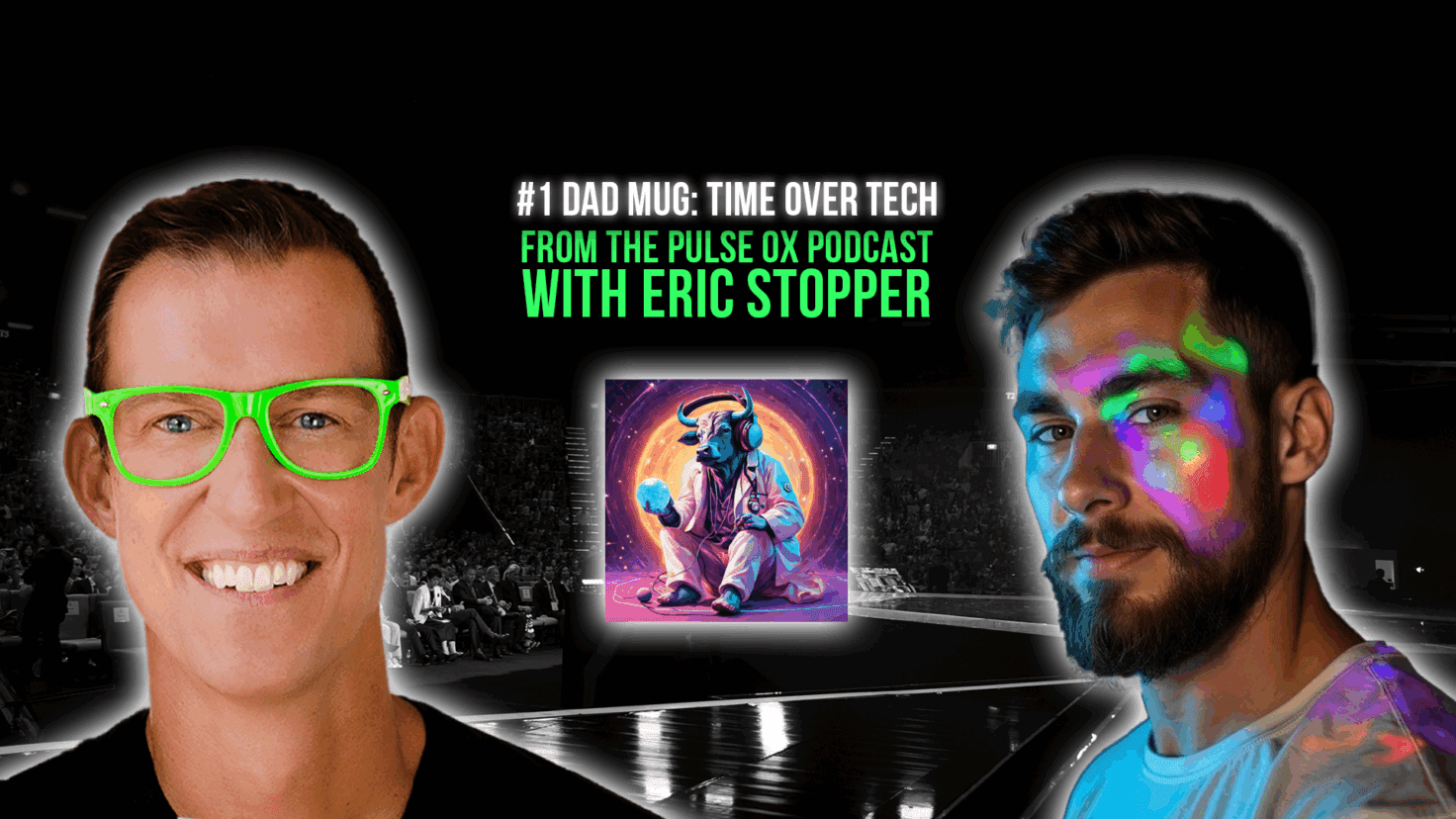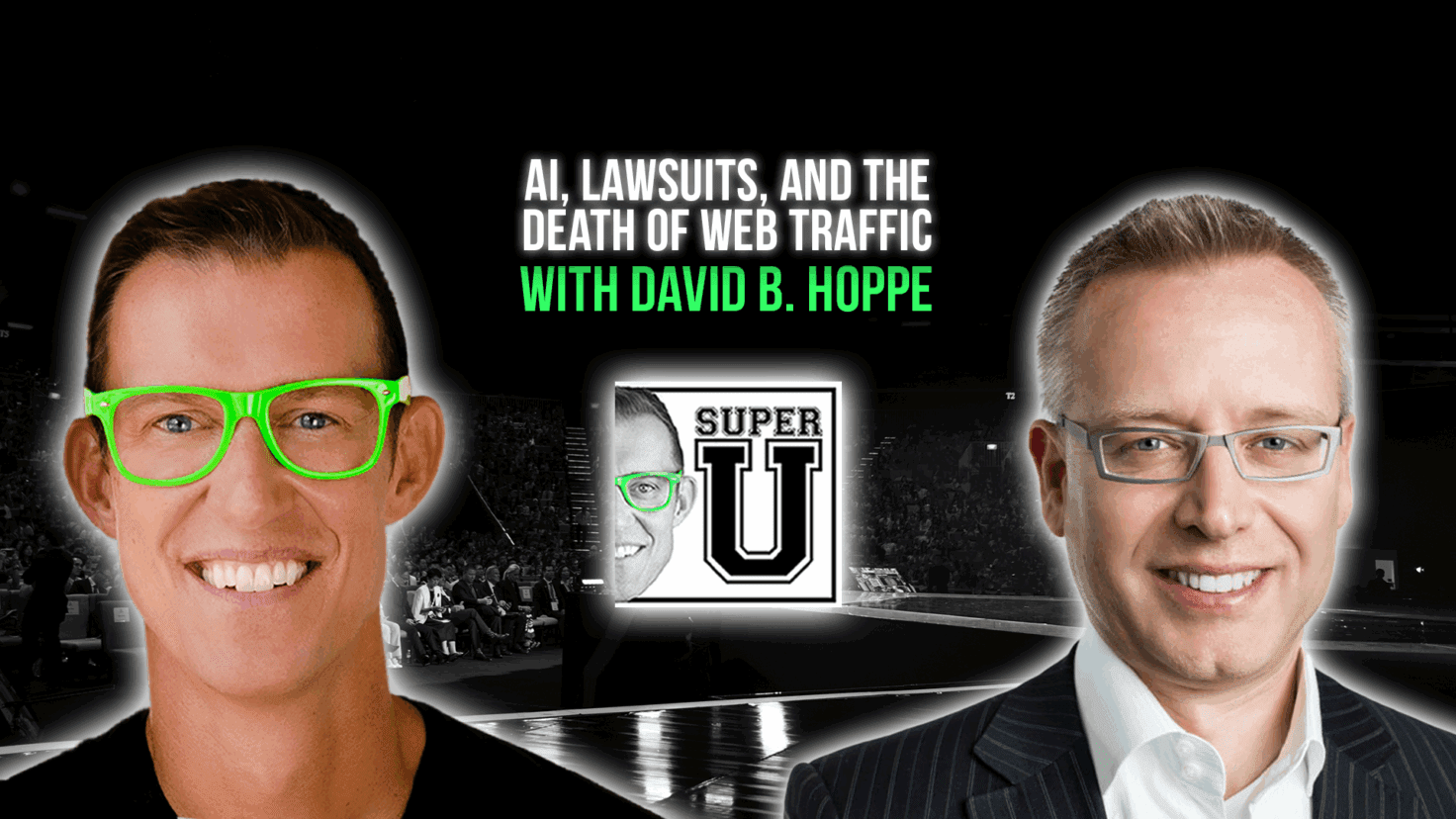Super U Podcast | 7 Super Tips with Mary Barra
Female leadership with GM CEO Mary Barra. Today, we’re bringing you insights from the CEO of General Motors, Mary Teresa Barra. We discuss ways to inspire your team, what to do in reassessing your career, and how to recruit talent. Barra is an American businesswoman who has been the chair and CEO of General Motors since 2014. She is the first female CEO of a ‘Big Three’ automaker. Prior to being named CEO, Barra was executive vice president of global product development, purchasing, and supply chain. Barra is currently driving a GMC HUMMER EV and Chevy Bolt EUV. She’s focused on delivering an all-electric future.
5x #1 Bestselling Author and Motivational Speaker Erik Qualman has performed in over 55 countries and reached over 50 million people this past decade. He was voted the 2nd Most Likable Author in the World behind Harry Potter’s J.K. Rowling. Qualman is also the inventor of the bestselling board game Kittycorn.
Need a sneak peek? Below are the main takeaways from the episode.
Super U Podcast | 7 Super Tips with Mary Barra
[6:11] Tip #1
“Oh, my gosh, you know, I’ve been at General Motors, I started as a co-op student, so I’ve been here for 42 years? Well, I think one of the clear advantages is I understand the company, I know the power of the team at General Motors, and how committed they are. And I think we have the best team on the field. And then, you know, we’ve brought in a lot of people from other industries. And so, you know, the I, our leadership team has people from other industries, you know, I think, less than five years seniority as well. So they bring in other experiences, and we have a very, I like to have constructive tension in the leadership team, where we’re challenging each other and making sure we’re getting everyone’s perspective to make the best decisions. So you know, I think it’s an that can be an advantage as well.”
[7:21] Tip #2
“You know, if you’re studying engineering, to still have some broadening classes, and some, you know, some from a, from a liberal arts perspective, or, you know, the liberal arts school or to understand philosophy, I think it makes you a better engineer. So, this, you know, I’m only going to do this, and I’m going to focus and I’m going to be the best person on this one technology. As far especially, that’s one thing, if you make that decision, you know, in once you get into your career, I remember one of the most valued people, when I was running the manufacturing engineering group was my welding expert. And he had spent his career becoming a welding expert, you know, and, and, and grew into that role. And that’s the kind of depth I’m talking about you need, but he probably made that decision in his 30s or 40s, not at 16 1718, when you’re picking an undergraduate graduate major. So I’m a big proponent that, you know, Azure, at a university to yes, if you know, for sure, this is what you want to do, I still think you should get some broadening classes and challenge yourself to think a little differently. If you don’t know, that’s okay.”
[9:02] Tip #3
“You know, I would say it’s exciting right now, obviously, when we went through the difficulties that we went through with restructuring and the bankruptcy that put a lot of pressure on everybody. But one of the things that I think is the strength of General Motors is its people, their dedication, and there, you know, just passion to do great cars and trucks. One of the things we’ve really worked to instill in the culture though is putting the customer at the center and earning customers for life and really understanding that every single action interaction you have with the customer is an opportunity to win them or lose them. And so that’s one of the key focus we’ve had for the last several years that is making a difference. And then also, you know, when you go back to that earlier time, you know, I very much talked to employees, we don’t have a right to exist, we have to earn our right to be General Motors and to be able to have the privilege to build cars trucks and crossovers or and other transportation services by doing a great job and earning customers and so it really that’s the transformation that we’ve made and I think people are excited.”
[10:19] Tip #4
“I think the way I learned the most was, you know, you learn something from every leader you work for you either learn what you want to do more of, or you learn what you certainly don’t want to ever be seen as when you get the opportunity to manage. So you learn from everyone you learn from a great leader, you learn from somebody you don’t deem as a great leader. But what I would say is, I think early in my career, I worked for someone who in this was in the manufacturing field, who taught me that, you know, you really have to win the hearts and minds of your team. And so I think the most effective leaders really care, you know, truly care about their, there, the people that work for them, want them to have the best invest in them. And that kind of passion, because there are so many challenges that you’re going to have, that you want to have, you want to build a relationship with your team or with your peers, or even with your supervisors that they know you’re going to work hard, they know you care. So as you face difficult situations, you know, you kind of like, hey, those are the people I want to have on my team, because I know we’re gonna work really hard. And we’re gonna figure out how to solve the problem.”
[11:34] Tip #5
“I find saying I screwed up to be hugely empowering. Because I’m a type A personality, and I generally have a point of view. But you know, I always tell my team, I will have a point of view, and I might jump out too fast. But you know, I always encourage them, but you know, you come with facts or data or a different opinion, you know, I’m going to listen, and I think it really reinforces that when you can say to your team, you know, I was thinking about that wrong, or you know what, I got that wrong? Because we don’t know when does everything right? And so I think when you create that environment, I think it’s the foundation of a learning environment as well. I think it’s so important. And every now and then you have to remind yourself about that. It’s like, you know, and I, at least I should say I do every now and then I have to ask some great people around me who every now and then will say Mary, and I value them because you know, sometimes you get so wrapped up in what you’re doing or what you’re trying to get the company to do that. You lose sight. So I also say, have people around you who are willing to, to pull you aside every now and then it’s so important.”
[12:58] Tip #6
“Well, you make a really good point. And we’ve invested a lot of time that one of them, you know, people have this 100-year-old view of General Motors. And you know, one of the stats that I throw out that usually surprises people is almost 40% of the employees, the salaried workforce has been with the company less than five years. And so we are you know, there’s a lot of new talent that has come to the company as we’ve done that we’ve, you know, kind of mixed, remixed the shift of there used to be a lot of people who worked on body structures, and now we have a lot more software engineers in the technical area. So, you know, we’ve really managed, how we shift the skill set of the organization, because even if you take the traditional car 10 years ago when you look at a car, you know, it had a radio maybe had some systems on it. But now every vehicle we make even you know, I’ll say the most base vehicle has 10s of millions of lines of code in it. So we’ve been making that shift and have a lot of new talent that has come to the company.”
[14:19] Tip #7
“So I always believe in your career, life’s too short to work for a company or be in a position that you don’t love. Now, you know, work is work, I had this funny text from my nephew, who’s now graduating from a BBA in business school at Michigan and it was his first job and he texted me, you know, I’m sitting at a computer and I’ve got to do all this work in spreadsheets and I and you know, so this you know, it kind of was like, this isn’t much fun. I said, Yeah, that’s why they call it to work. And it’s just, you know, you’re gonna have to work and not every day is you know, you can’t measure your career on every day. But if you find yourself after six months after a year that you know work is not challenging or you don’t enjoy it or you’re not energized by it. You should. Have we found something else to do? Again, because life’s too short.”
Connect with Mary Barra:
LinkedIn: https://www.linkedin.com/in/mary-barra
Twitter: @mtbarra
Click here to subscribe and listen to the full episode.

To ensure you don’t miss future episodes, subscribe to our podcast by clicking here >> Super U Podcast. We hope these tips help unlock and unleash your inner superpower!
The Super U Podcast is hosted by #1 bestselling author and Motivational Speaker Erik Qualman.





